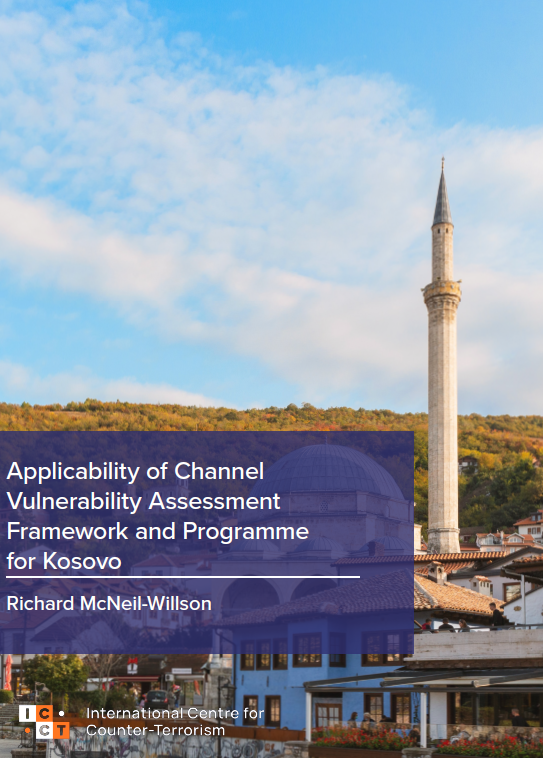24/05/2024

International Centre for Counter - Terrorism
Kosovar Center for Security Studies
Richard McNeil-Willson
The brief highlights the significant differences between the UK and Kosovo, particularly concerning historical, political, and socio-economic contexts. It emphasizes the need for careful adaptation to avoid replicating past mistakes made in the UK. The Channel framework focuses on identifying individuals at risk of extremism based on three main dimensions: engagement with extremist ideologies, intent to cause harm, and capability to cause harm. This multi-agency approach aims to provide tailored support to prevent radicalization.
Kosovo faces unique challenges, including the high number of returnees from conflict zones like Syria and Iraq. The brief discusses the current limitations in Kosovo's capacity, coordination, and metrics for risk assessment within its correctional and probation services. It suggests that while the Channel framework could enhance Kosovo's capabilities in dealing with violent extremism, it must be adapted to fit the local context.
The recommendations emphasize a rights-based approach, greater coordination among agencies, and the development of a suitable assessment matrix tailored to Kosovo's specific needs. The publication aims to guide Kosovan authorities in implementing an effective and context-sensitive approach to countering violent extremism, leveraging international experience while addressing local realities.